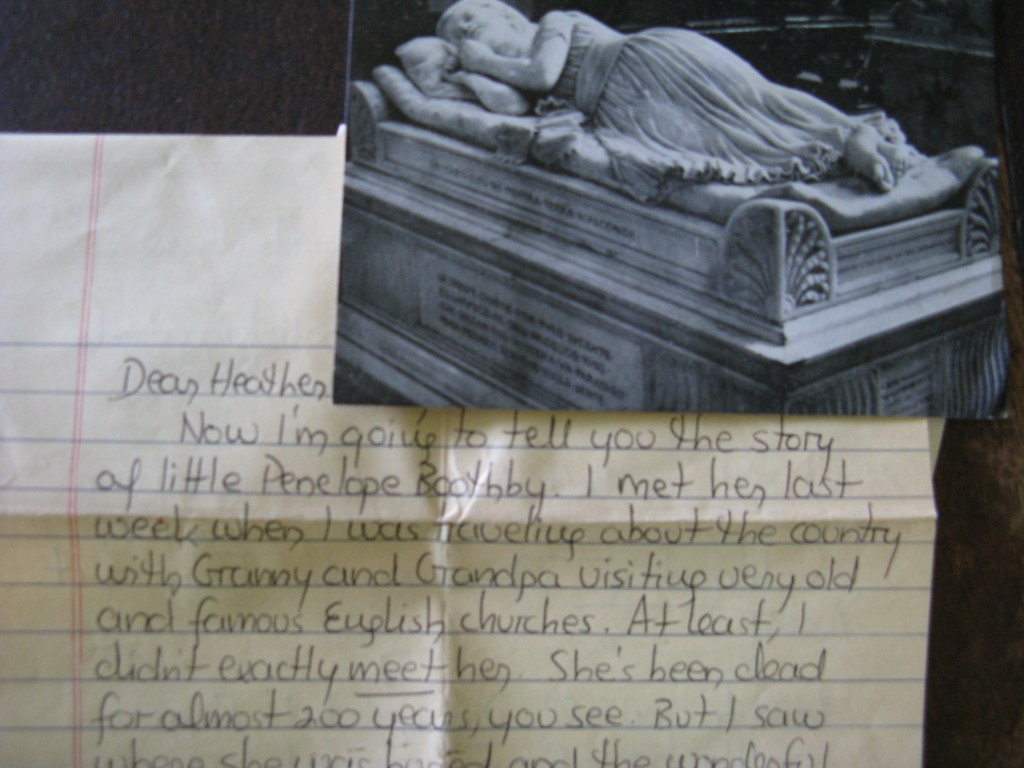Sharing Sad Stories
When I was five, my aunt sent me letter I'll never forget. It was a loving letter, but a sad story. It began like this:
Now I'm going to tell you the story of little Penelope Boothby. I met her last week when I was traveling about the country with Granny and Grandpa visiting very old and famous English churches. At least, I didn't exactly meet her. She's been dead for almost 200 years, you see.
Poor little Penelope was only 5 years old when she died. She was apparently very pretty and very clever. Her parents were very proud of her. Too proud, in fact. They wanted her to see and do and learn everything. At the age of 5 she could speak, as well as English, Italian, French and Latin. Well, it was all too much for her. She just lay down and died. Isn't that a sad story? But she looks very peaceful and happy in the picture, curled up and fast asleep. And that, my dear, is the story of Penelope Boothby. The End.
She enclosed a postcard showing the chiseled form of Penelope on her tomb and copied out the tomb inscription: "She was in form and intellect most exquisite. The unfortunate parents ventured their all on this frail bark, and the wreck was total." (Ashbourne, England, 1791)
As a child I spent hours gazing at the forlorn form of Penelope and thinking about her story. For one thing, I felt very grown up to receive such a letter. But I was also intrigued because it didn't have a happy ending.
Life sometimes doesn't.
Kids need all kinds of stories. Not just the kind where everything ties up neatly and everyone is rich and comfortable and lives joyfully ever after. We need to share sad stories, tragic stories, real stories, too. The story of Penelope touched my heart. Thinking about her made me want to meet her and invent new endings. It made me a bit more human.
Kids books are getting happier these days. They're changing the endings and removing conflict. Chicken Little doesn't get eaten by a fox anymore -- he goes home safely to live with his friends. But we need sad stories in the mix, and we need to have the courage to share them with young children. Stories that make us think, ponder and touch our heart.
What sad stories do you remember from childhood? What impact did they have? Why do you think we need sad stories?
